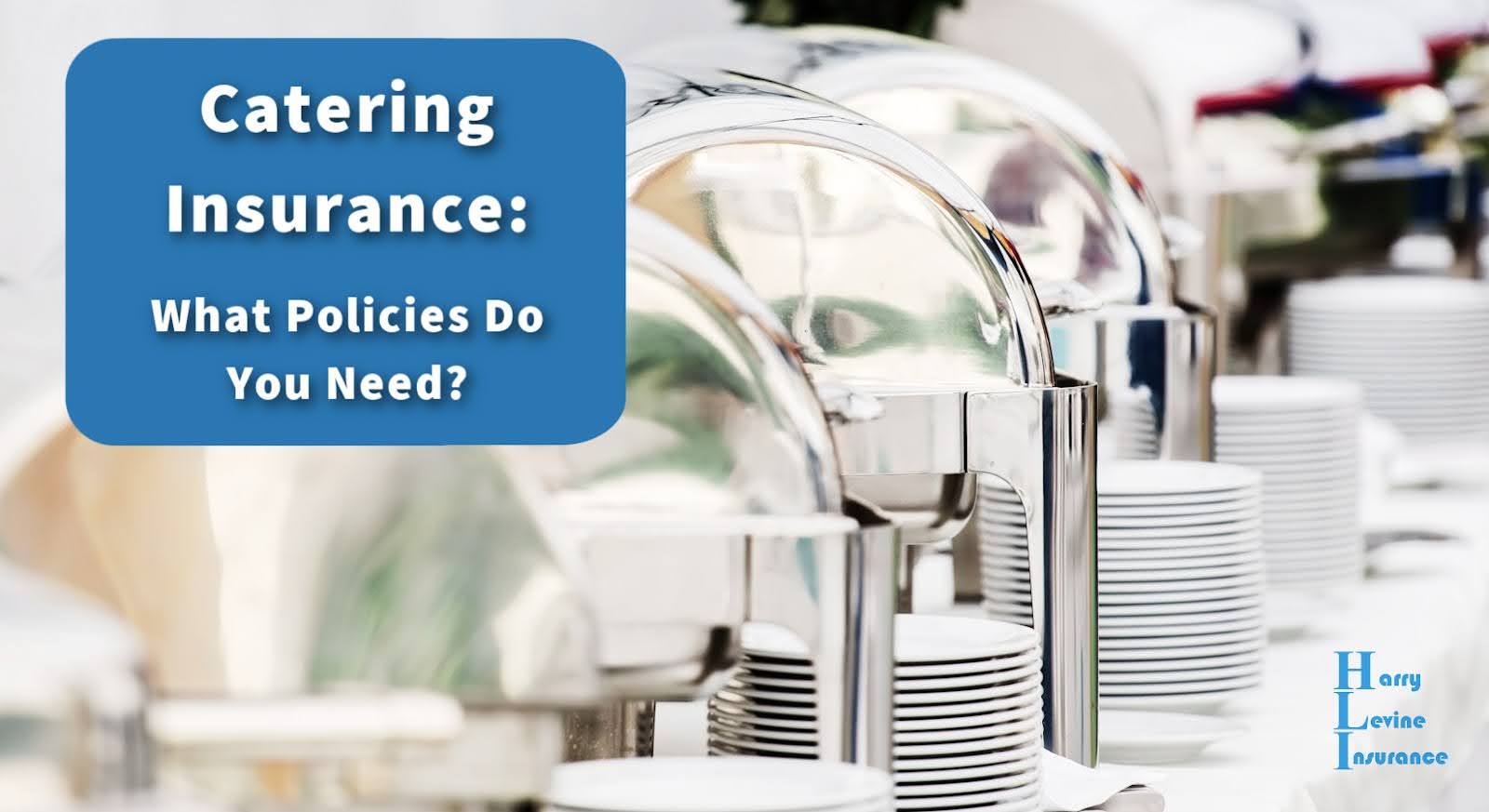Running a catering business means more than just serving up great food. You’re also responsible for keeping events on track, even when things don’t go as planned. Whether you’re plating hors d’oeuvres at a wedding or dishing out BBQ at a corporate picnic, unexpected mishaps can quickly eat into your profits.
That’s where catering business insurance comes in. With the right mix of coverage, you can protect your business from common risks so you can focus on what you do best: cooking up unforgettable experiences.
Why Insurance Is Essential For Caterers
You might have the perfect menu, the best crew, and a calendar full of bookings, but without the right insurance, one unexpected incident could leave your business going up in smoke.
Whether it’s a guest injury, a last-minute cancellation, or a power outage that ruins your prep, the risks you face are part of the job. And while it may be tempting to skimp on coverage to save money, doing so can leave your business exposed when it matters most.
Catering business insurance protects your business from costly surprises and makes sure you don’t have to foot the bill when something goes wrong.
Because when your livelihood depends on smooth events and satisfied clients, the last thing you want is to be caught unprepared.


What Catering Business Insurance Do I Need?
Catering insurance isn’t a single policy, but a carefully chosen combination of coverages that work together to protect your business from both everyday mishaps and event-day emergencies.
Each policy plays a vital role in keeping your operations running smoothly, your team protected, and your clients confident in your professionalism. Below, we’ll break down the essential policies that make up a strong catering liability insurance plan so you can build a coverage recipe that fits your unique business.
1. General Liability Coverage
General liability coverage is the first layer of protection you should have in place. This policy helps cover the costs of bodily injury or property damage as a result of your business operations.
For example, if a guest trips over a power cord at a venue or you accidentally spill hot food on a client’s equipment, general liability can help cover medical bills, repairs, and any resulting legal fees.
2. Product Liability Insurance
Even when you follow all food safety protocols, there’s always a chance that a guest could get sick or have an allergic reaction after eating your food.
Product liability insurance helps cover claims related to contaminated or improperly labeled food which protects your business from lawsuits, medical bills, and reputational damage.
3. Liquor Liability Insurance
If your catering business serves or supplies alcohol—even occasionally—you could be held liable for alcohol-related accidents or injuries.
Liquor liability insurance helps cover legal fees, damages, or medical costs if a guest causes harm after being served. In many states, this coverage is required by law for events involving alcohol.
4. Food Spoilage Coverage
When refrigeration fails or a power outage strikes, spoiled ingredients can lead to costly losses and canceled events.
While commercial property insurance covers damage to your equipment, it doesn’t typically reimburse you for the value of lost food. That’s where food spoilage coverage steps in, helping you recover the cost of perishable inventory so one glitch doesn’t eat into your bottom line.
5. Event Cancellation and Client Disputes
When a client cancels at the last minute or refuses to pay, your business can take a serious financial hit.
This type of coverage helps reimburse lost revenue and legal expenses tied to cancellations, postponements, or disagreements over service. It’s especially valuable for caterers handling weddings, corporate events, or other high-stakes bookings.


6. Commercial Property Insurance
Your kitchen, office, and storage spaces are the backbone of your catering business, and commercial property insurance helps protect them.
This coverage pays for repairs or replacements if fire, theft, vandalism, or certain weather events cause damage to your building or equipment.
7. Equipment Breakdown Coverage
Even if your equipment isn’t damaged by fire or theft, a mechanical failure can still bring your business to a halt. While commercial property insurance covers external damage, it typically doesn’t cover internal breakdowns.
Equipment breakdown coverage helps pay for repairs or replacements when your appliances, ovens, or coolers unexpectedly fail.
8. Inland Marine Insurance
Standard property insurance usually stops at your front door, so if you’re transporting equipment to venues, you’ll need inland marine insurance. This coverage protects valuable tools, supplies, and gear while in transit or at off-site locations.
9. Business Interruption Insurance
If a fire, storm, or other covered event forces you to pause operations, business interruption insurance helps replace lost income and cover ongoing expenses.
This coverage may be bundled with general liability and commercial property insurance in a Business Owner’s Policy (BOP), making it easier to get essential protection in one package.
10. Commercial Auto Insurance
If your business uses vans, trucks, or other vehicles to transport food, staff, or equipment, personal auto insurance won’t cut it.
Commercial auto insurance covers accidents, damage, and liability involving business-owned or leased vehicles are essential for any mobile catering operation.


11. Workers Compensation Insurance
When employees are injured on the job, workers comp helps cover medical bills and lost wages while they recover. Workers comp requirements vary by state, but in Florida, it’s required if your business has four or more employees.
Even if you’re not legally required to carry it, this coverage is highly recommended. It protects your team and shields your business from costly medical claims or potential lawsuits.
12. Employee Theft Insurance
Unfortunately, not all losses come from outside threats. Employee theft insurance helps protect your business if a staff member steals money, equipment, inventory, or sensitive client information.
It’s a smart safeguard for catering businesses that handle cash, manage inventory, or trust employees with valuable assets.
13. Employment Practices Liability Insurance
Hiring and managing staff comes with risks beyond physical injuries. Employment Practices Liability Insurance (EPLI) covers claims related to wrongful termination, harassment, discrimination, and other employment-related issues. It helps protect your business from costly legal battles—even if the claim turns out to be unfounded.
14. Cyber Liability Insurance
If you take online bookings, process payments, or store client data, your catering business could be vulnerable to cyberattacks or data breaches.
Cyber liability insurance helps cover the costs of recovery, legal fees, and customer notification if sensitive information is compromised. It’s an essential layer of protection in today’s digital landscape.


The Secret Ingredient? Great Insurance Coverage
In catering, timing, preparation, and presentation are everything, and the same goes for your insurance. The right coverage doesn’t just check a box; it helps you recover quickly, keep clients happy, and grow with confidence.
At Harry Levine Insurance, we understand the unique risks caterers face because we’ve helped business owners like you protect what matters most. Instead of juggling quotes from different carriers, let our independent agents build a customized plan that fits your needs, your budget, and your long-term goals.
Don’t leave your business half-baked.
Contact us to get the right catering business insurance today.
This article is intended for informational purposes only and does not constitute legal or insurance advice. For personalized recommendations, contact a licensed agent.


